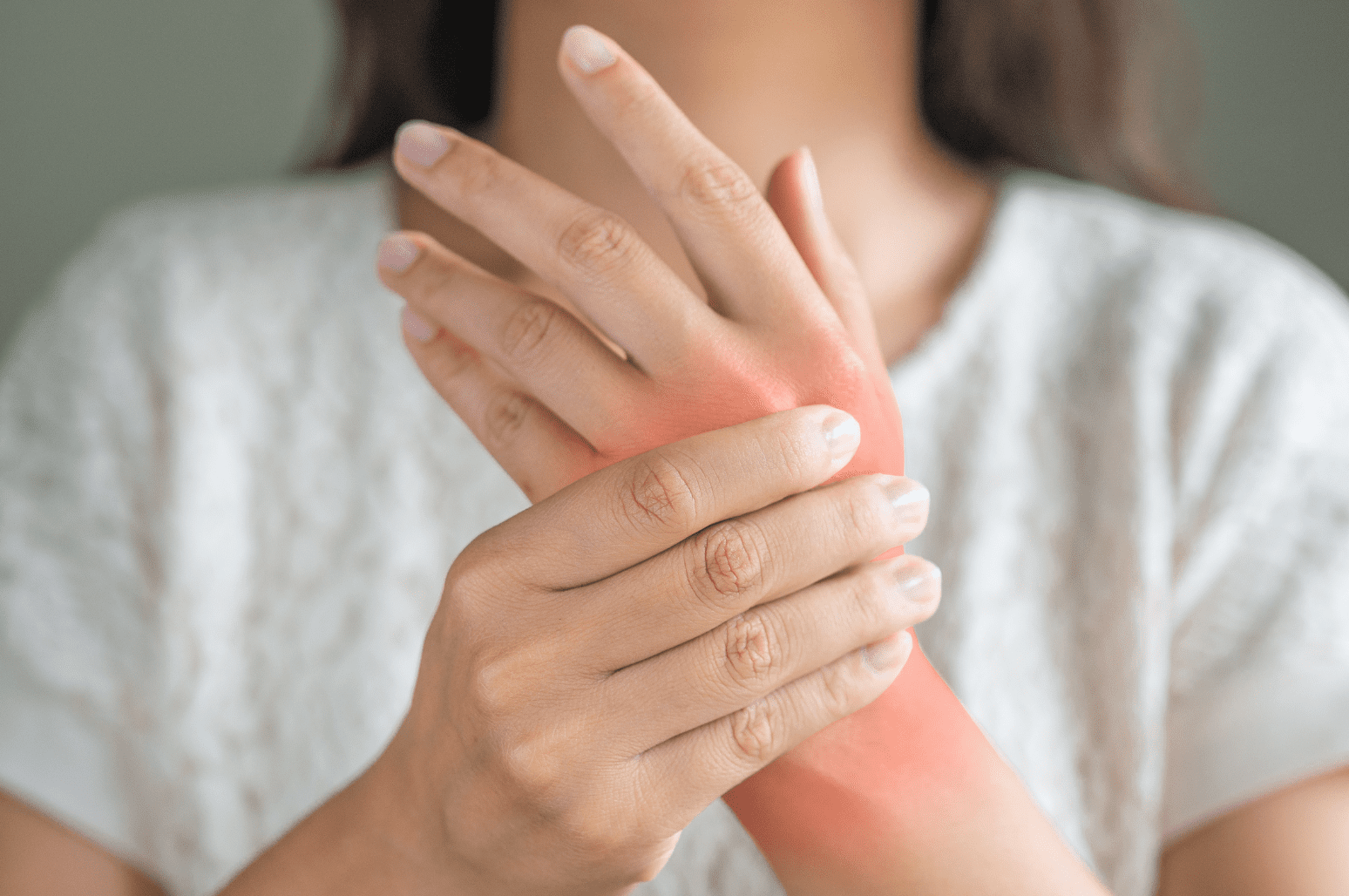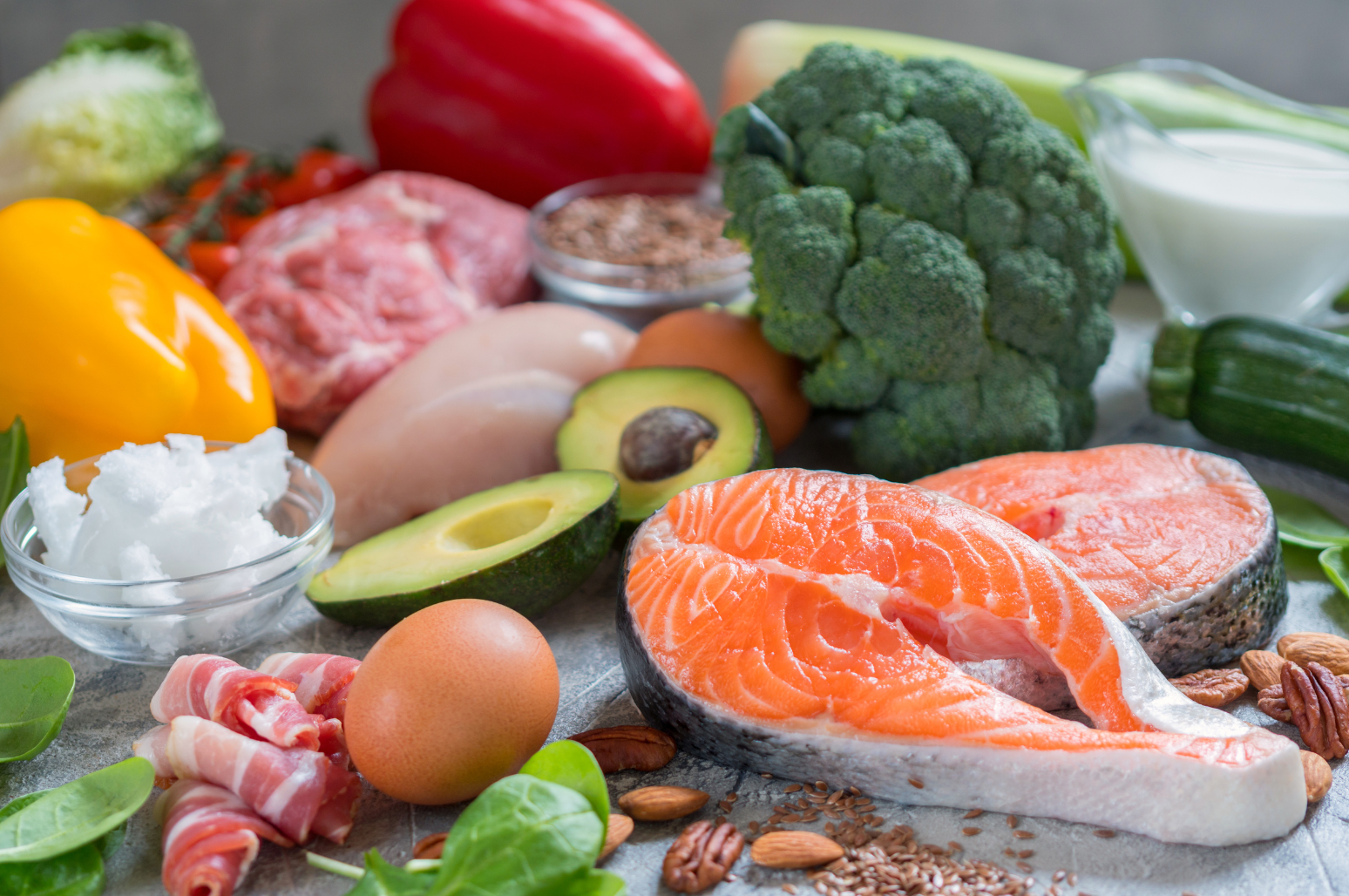
Diverticulitis attacks are described as being especially painful. If you have diverticulitis, you might have had times when you were doubled over in pain, clutching your abdomen, typically on the lower left side. The pain might have radiated to your back, leaving you unable to function properly. In severe cases, diverticulitis attacks can lead to hospitalization and even emergency surgery. So, what is diverticulitis? And how does a ketogenic diet affect diverticulitis?
What Is Diverticulitis?

Diverticula refers to small pouches that develop in the lining of your gastrointestinal tract, most often in the lower part of the large intestine (colon). Diverticula are fairly common, especially after age 40, but most of the time, they don’t cause any problems.
When one or more of the bulging pouches gets inflamed or infected, it’s known as diverticulitis. Symptoms of diverticulitis include:
- Fever
- Nausea
- Vomiting
- Severe abdominal pain or tenderness
- Changes in bowel habits (constipation or diarrhea)
Risk factors for developing diverticulitis are obesity, advanced age, smoking, lack of exercise, and certain medications. The cause of diverticula isn’t always clear, but the pouches can appear in naturally weaker places in your colon when they give way under pressure. Diverticulitis happens when the diverticula tear, leading to inflammation and, in some cases, infection.
Mild diverticulitis might go away with rest, while other cases require treatment. Conventional treatments for diverticulitis include diet changes, antibiotics, and, in more severe cases, surgery. [1]
It’s important you seek medical attention if you have constant, unexplained abdominal pain and/or a fever, constipation, and diarrhea.
What About Diet?
To improve diverticulitis, some doctors might recommend a clear liquid diet, at least for a few days, to give your digestive system a chance to rest and recover. They might advise working your way up to eating solid and fibrous foods. [2]
When it comes to diet and diverticulitis, different experts have different opinions. Some believe food doesn’t play a big role, while others believe dietary changes can be pivotal in managing this condition.
Low FODMAP
A low-FODMAP diet is one popular recommendation. FODMAPS refers to types of carbohydrates: fermentable oligosaccharides, disaccharides, monosaccharides, and polyols. On a low-FODMAP diet, you limit or avoid foods higher in FODMAPS, such as:
- Fermented foods like sauerkraut or kimchi
- Fruits like apples and pears
- Legumes and beans
- Foods high in trans fats
- Veggies like Brussel sprouts, onion, garlic, and cabbage
- Soy protein
Some researchers found that a low FODMAP diet prevented high pressure in the colon, which could possibly be helpful for diverticulitis. [3]
High Sugar and Problematic Foods
Once again, sugar could be problematic for diverticulitis and inflammatory gastrointestinal conditions. A keto diet requires a significantly reduced sugar intake, so, in theory, it could be a useful nutritional tool or adjunct therapy for diverticulitis. [4]
Acellular carbohydrates like flour and sugar are common in the standard American diet. They have a high carbohydrate density and promote inflammatory gut microbiota, which could possibly aggravate diverticulitis. Cellular carbohydrates like whole fruits are different and promote gut health by fueling anti-inflammatory gut bacteria. [5]

Fiber
The effect of fiber on diverticulitis varies, with one camp of researchers and doctors believing low fiber is the way to go and the other believing fiber improves colon health and gut motility. Recent research shows dietary fiber can improve bowel function and reduce symptoms of diverticular disease. [6]
To add to this, other studies reveal that a low fiber diet could heighten the risk of diverticulitis. [7] Foods high in fiber include veggies and beans.
Drink plenty of water and stay hydrated when adding more fiber to your keto diet.
Keep in mind that during a diverticulitis flare-up, fiber could bulk up the stool and increase colon contractions, potentially making matters worse or more painful, so it might be best to lower fiber intake during a flare-up.
Low fiber foods include cooked animal proteins like poultry, fish, and eggs, cooked spinach, beets, asparagus, and healthy oils like olive oil.
Nuts and Seeds
One prevailing theory is that hard, undigested bits of food like nuts and seeds get caught in the diverticular pouches and irritate them, but there’s no scientific evidence to back up this theory.
In fact, a 2008 large prospective study following over 47,000 men for over 18 years found no relationship between diverticulitis and eating nuts, seeds, and popcorn. Men who ate the most popcorn and nuts actually had less diverticulitis than men who ate the least. [8]
Gut Bacteria
Gut bacteria are involved in the development of diverticular disease, according to a 2016 study. Consuming fiber-rich foods and probiotics along with a well-formulated nutritious diet of natural whole foods can boost the health of your gut microbiome–the microorganisms in your gut. [9]
How Does a Ketogenic Diet Affect Diverticulitis?

Unfortunately, no high-quality studies have looked specifically at the ketogenic diet and diverticulitis. More studies (particularly randomized controlled studies) are needed to reach clear conclusions.
International panels of medical experts and gastroenterologists believe a ketogenic or low-carb diet is safe for people with a history of diverticular disease and won’t exacerbate the condition or increase the risk of flare-ups.
Scientific and anecdotal evidence tells us that a ketogenic diet reduces metabolic syndrome, obesity, and chronic inflammation in numerous ways, such as by removing problematic sugar and refined carbohydrates from the diet. The keto diet has been shown to benefit the digestive system, lower inflammation, and boost overall health, so it’s likely it could also benefit diverticulitis.
Not-Your-Average-Western-Diet
Research shows that the ketogenic diet can benefit digestion and digestive disorders like irritable bowel syndrome (IBS), so it could also be beneficial for diverticulitis. A healthy, well-formulated ketogenic diet certainly isn’t the standard Western diet of burgers and fries, sugary milkshakes and candy, cakes and chips, and a lack of quality veggies, protein, and fats.
Diverticular disease appears far more frequently in Westernized countries, leading many health advocates and experts to comment that it’s likely a disease of Western civilization, and nutrition and lifestyle factors could help.
As people adopt a Western lifestyle heavy in carbohydrates, sugar, and processed foods, the incidence of diverticular disease increases, including in places like Asia and Africa, where the condition used to be especially rare.
To summarize, a ketogenic diet may reduce the risk of diverticulitis and flare-ups by:
- Reducing chronic inflammation with powerful ketones like beta-hydroxybutyrate. [10]
- Strengthening the mitochondria and promoting the growth of new mitochondria.
- Increasing your body’s antioxidant production.
- Supporting healthy gut bacteria by including more nutritious low-carb foods and prebiotic fiber and ditching refined sugars and carbohydrates.
- Increasing workout performance and exercise, which has been shown to improve diverticulitis. [11]
While keto may be able to help you manage the risk factors for diverticulitis, such as chronic inflammation, gut dysbiosis, high sugar intake, and obesity, diet alone may not be enough to prevent diverticulitis, and further research is needed on how a ketogenic diet affects diverticulitis.
Management of diverticulitis depends on the individual. Take time to determine what’s best for you by listening to your body and monitoring how you feel after you eat certain foods.
If you have diverticulitis or believe you’re at risk for diverticulitis and if you’re considering making dietary changes, it’s best you speak to your doctor or healthcare practitioner.
References
Mayo Clinic. Diverticulitis: Symptoms and Causes. Diverticulitis - Symptoms and causes - Mayo Clinic
National Institute of Diabetes and Digestive and Kidney Diseases (NIH). Eating, Diet, and Nutrition for Diverticular Disease. Eating, Diet, & Nutrition for Diverticular Disease | NIDDK (nih.gov)
Uno, Y., & Van Velkinburgh, J. C. (2016). Logical hypothesis: Low FODMAP diet to prevent diverticulitis. World J Gastrointest Pharmacol Ther, 7(4), 503-512. DOI: 10.4292/wjgpt.v7.i4.503
Strate, L. L., Keeley, B. R., Cao, Y., Wu, K., Giovannucci, E. L., & Chan, A. T. (2017). Western dietary pattern increases, and prudent dietary pattern decreases, risk of incident diverticulitis in a prospective cohort study. Gastroenterology, DOI:https://doi.org/10.1053/j.gastro.2016.12.038
Spreadbury, I. (2012). Comparison with ancestral diets suggests dense acellular carbohydrates promote an inflammatory microbiota, and may be the primary dietary cause of leptin resistance and obesity. Diabetes Metab Syndr Obes, DOI: 10.2147/DMSO.S33473
Dreher, M. L. (2018). Dietary patterns, food and fiber in irritable bowel syndrome and diverticular disease. Dietary Patterns and Whole Plant Foods in Aging and Disease, Dietary Patterns, Foods and Fiber in Irritable Bowel Syndrome and Diverticular Disease | SpringerLink
Swanson, S. M., & Strate, L. L. (2018). In the clinic: Acute colonic diverticulitis. Ann Intern Med, 168(9), ITC65-ITC80. DOI: 10.7326/AITC201805010
Strate, L. L. (2008). Nut, corn, and popcorn consumption and the incidence of diverticular disease. JAMA, 300(8), 907-914. DOI: 10.1001/jama.300.8.907
Barbara, G., Scaioli, E., Barbaro, M. R., Biagi, E., Laghi, L., Cremon, C…Festi, D. (2016). Gut microbiota, metabolome, and immune signatures in patients with uncomplicated diverticular disease. Gut Microbiota, 66(7), http://dx.doi.org/10.1136/gutjnl-2016-312377
Pinto, A., Bonucci, A., Maggi, E., Corsi, M., & Businaro, R. (2018). Anti-oxidant and anti-inflammatory activity of ketogenic diet: New perspectives for neuroprotection in Alzheimer’s disease. 7(5), 63. DOI: 10.3390/antiox7050063
Williams, P. T. (2009). Incident diverticular disease is inversely related to vigorous physical activity. Med Sci Sports Exerc, 41(5), 1042-1047. DOI: 10.1249/MSS.0b013e318192d02d










